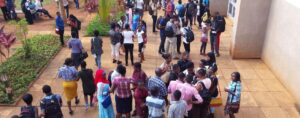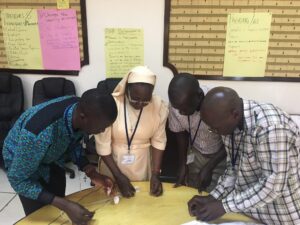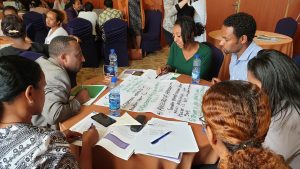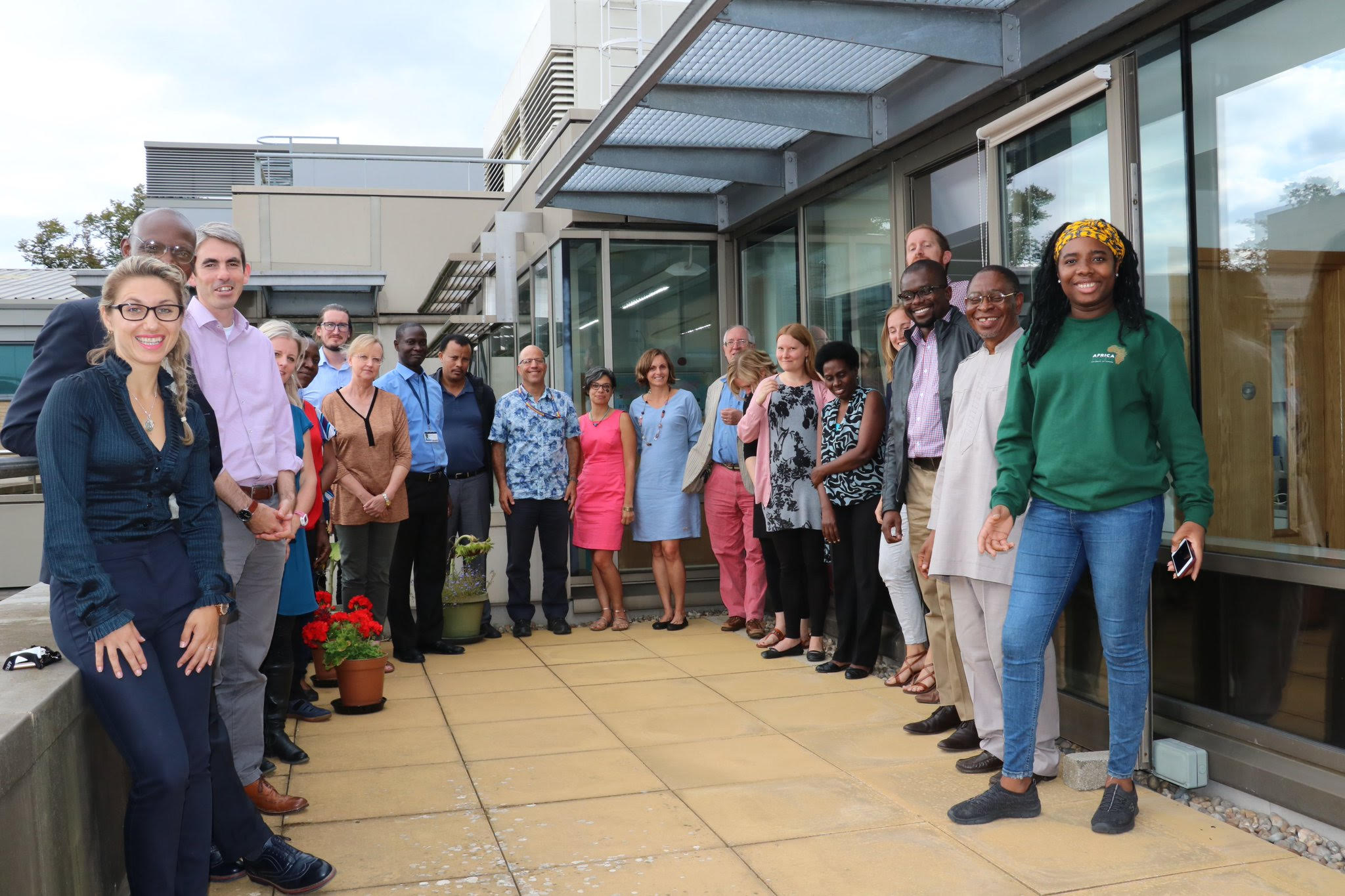
How can we create more effective and equitable systems of research and higher education?
We know that to achieve the Sustainable Development Goals (SDGs), we need to bring the most relevant research and knowledge evidence to bear on the most pressing and intractable problems, and to support decision makers and practitioners to use it.
We’ve seen important, substantial investments in Southern research in recent years – more funding and more support to universities and research institutions to train their staff and invest in their facilities. But, at INASP we’ve recently been asking whether creating islands of capacity and excellence is in fact generating inequities that restrict the transformation of the system as a whole and means we are only benefiting from a fraction of the talent.
INASP and the Africa Oxford Initiative (AfOx) recently held an informal roundtable event to meet members of AfOx’s Visiting Fellowships scheme – part of AfOx’s initiative to foster partnerships between Oxford and African institutions and support researchers across the continent.
AfOx Fellows represent some of Africa’s most talented researchers, and many come from strong research institutions, some with many international partnerships and funding. They fellows have all navigated an array of challenges in order to successfully develop their academic and research careers and build strong research networks. We wanted to use this opportunity to learn from them – not only how we can support stronger African research systems, but how we can do so in a way that also works towards more equitable systems too, bringing in the ideas and expertise of many other talented researchers.
International collaborations are an established way of both undertaking research and of supporting African scientists and in the discussion we heard many success stories. We heard about fields where lively international research collaboration has been made possible and opportunities for improved collaboration between government agencies and research organizations have been created and are helping to drive improved research capacity.
"A network without work is just a net". Interdisciplinary collaboration needs strong disciplines to begin with! – Seifu Kebede
— INASP (@INASPinfo) August 15, 2018
Inequity challenges
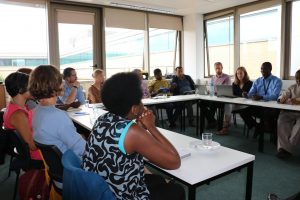 However, we heard some familiar concerns about the inequities inherent in many partnerships. As one fellow from Ethiopia noted, the different research priorities of African and Northern academics can see important Ethiopian research relegated to the status of a ‘regional’ or ‘local’ concern, considered unsuitable for an international journal.
However, we heard some familiar concerns about the inequities inherent in many partnerships. As one fellow from Ethiopia noted, the different research priorities of African and Northern academics can see important Ethiopian research relegated to the status of a ‘regional’ or ‘local’ concern, considered unsuitable for an international journal.
Another challenge was noted for some areas of research; the biomedical fields were given as an example. This challenge is that the need for increasingly sophisticated and expensive equipment creates further inequities between Northern institutions and their African peers – and even between African institutions. Some research centres have been able to access equipment – such as specialist microscopes – through their international links, which has helped to advance their work but increases the gap between scientists within the country.
The lack of domestic research funding in many African countries is often noted and leads researchers to search for international funding sources. But, as one Ghanaian fellow commented, the requirements of international funders can create additional obstacles, requiring African researchers to work to an array of guidelines and regulations, some of which may be inappropriate or impractical and do little to improve the research process or outcomes. He also noted that research is often ‘economy driven’ so that the research and higher education landscape is shaped by scientists in the fields where money is available, and increasingly by the growth of business schools, leaving humanities as a low priority. His work has shown that the humanities can be vital in helping students and scientists to navigate the ethics of research, or of daily life, and to understand the society around them – all of which are important if research is to support development.
Personal pressures can be barriers to collaboration
Finally, co-creation and partnership are often difficult issues in a competitive world of funding and publication. In some cases, the personal pressures to publish in order to advance a research career can encourage scientists to keep equipment or data to themselves, thwarting opportunities for collaborative research – particularly within national research communities – which would take knowledge further. Some even advise their younger colleagues to guard their resources carefully.
Modern biomedical research requires a huge amount of funding for medical infrastructure/resources, which is a driver of inequity between institutions in Europe & Africa. Some initiatives trying to address this, but individual researchers unsure how to overcome these challenges
— INASP (@INASPinfo) August 15, 2018
However, one fellow shared a positive example of when African scientists had come together to support each other. Having shared his fruit fly specimens with other labs, this fellow later lost his own collection. Colleagues in other labs, who had benefited from his generous instinct to build a fruit fly research community, stepped in and sent him new specimens.
It’s all too easy to think we understand the challenges facing African research systems – and far too often that’s what Northern institutions do as they set out to help. But, across the continent, African research institutions are undergoing dramatic change. They are increasingly embedded in international networks, forging national and regional initiatives and overcoming old problems but encountering new challenges in the process. It was a privilege to spend a few hours with some of the continent’s leading academics to learn about their visions, ideas and needs. And also to reflect on how we might play a useful part, so that, in partnership with others, we can ensure that a wider pool of talent has the opportunity to lead the continent’s research forward.

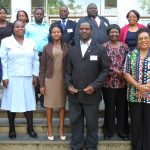 Previous Post
Previous Post Next Post
Next Post